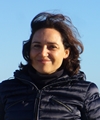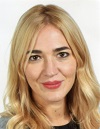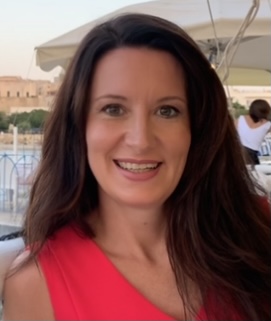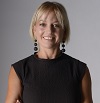Studying at the University of Verona
Here you can find information on the organisational aspects of the Programme, lecture timetables, learning activities and useful contact details for your time at the University, from enrolment to graduation.
Academic calendar
The academic calendar shows the deadlines and scheduled events that are relevant to students, teaching and technical-administrative staff of the University. Public holidays and University closures are also indicated. The academic year normally begins on 1 October each year and ends on 30 September of the following year.
Course calendar
The Academic Calendar sets out the degree programme lecture and exam timetables, as well as the relevant university closure dates..
| Period | From | To |
|---|---|---|
| Sem. 1A | Sep 27, 2021 | Nov 6, 2021 |
| Sem. 1B | Nov 15, 2021 | Jan 12, 2022 |
| Sem. 2A | Feb 14, 2022 | Mar 26, 2022 |
| Sem. 2B | Apr 4, 2022 | Jun 4, 2022 |
| Session | From | To |
|---|---|---|
| Sessione Invernale | Jan 10, 2022 | Feb 12, 2022 |
| Sessione estiva | Jun 6, 2022 | Jul 23, 2022 |
| Sessione autunnale | Aug 29, 2022 | Sep 24, 2022 |
| Session | From | To |
|---|---|---|
| Sessione estiva | Jul 11, 2022 | Jul 16, 2022 |
| Sessione autunnale | Nov 7, 2022 | Nov 12, 2022 |
| Period | From | To |
|---|---|---|
| FESTIVITA' OGNISSANTI | Nov 1, 2021 | Nov 1, 2021 |
| Vacanze di Natale | Dec 25, 2021 | Jan 6, 2022 |
| VACANZE DI PASQUA | Apr 15, 2022 | Apr 19, 2022 |
| Festa della Liberazione | Apr 25, 2022 | Apr 25, 2022 |
| FESTA DEL LAVORO | May 1, 2022 | May 1, 2022 |
| Festività Santo Patrono di Verona | May 21, 2022 | May 21, 2022 |
Exam calendar
Exam dates and rounds are managed by the relevant Humanistic Studies Teaching and Student Services Unit.
To view all the exam sessions available, please use the Exam dashboard on ESSE3.
If you forgot your login details or have problems logging in, please contact the relevant IT HelpDesk, or check the login details recovery web page.
Should you have any doubts or questions, please check the Enrollment FAQs
Academic staff
 tamara.bastianello@univr.it
tamara.bastianello@univr.it
 cristina.bertazzoni@univr.it
cristina.bertazzoni@univr.it
 andrea.ghidini@univr.it
andrea.ghidini@univr.it
 stefania.pontrandolfo@univr.it
stefania.pontrandolfo@univr.it
 massimo.recalcati@univr.it
massimo.recalcati@univr.it
 sorayaelizabeth.shamloo@univr.it
sorayaelizabeth.shamloo@univr.it
 marco.ubbiali@univr.it
marco.ubbiali@univr.it
Study Plan
The Study Plan includes all modules, teaching and learning activities that each student will need to undertake during their time at the University.
Please select your Study Plan based on your enrollment year.
1° Year
| Modules | Credits | TAF | SSD |
|---|
2° Year activated in the A.Y. 2022/2023
| Modules | Credits | TAF | SSD |
|---|
| Modules | Credits | TAF | SSD |
|---|
| Modules | Credits | TAF | SSD |
|---|
| Modules | Credits | TAF | SSD |
|---|
Legend | Type of training activity (TTA)
TAF (Type of Educational Activity) All courses and activities are classified into different types of educational activities, indicated by a letter.
Theories and methods of inclusive education (2022/2023)
Teaching code
4S003377
Teacher
Coordinator
Credits
6
Language
Italian
Scientific Disciplinary Sector (SSD)
M-PED/03 - METHODOLOGIES OF TEACHING AND SPECIAL EDUCATION
Period
Sem. 2A dal Feb 13, 2023 al Mar 30, 2023.
Learning objectives
Knowledge and understanding 1. Knowledge of the fundamental core of international documents in the field of inclusive education, and understanding in depth the concrete problems and the resources of the inclusive educational action in the scholastic, work and social context. 2. Knowledge and understanding of the theoretical and methodological references of the inclusive approach in education. 3. The difference between the different meanings and the different modalities of inclusive educational action in relation to the contexts and characteristics of the subjects, with particular attention to inclusive processes concerning people with disabilities. Applying knowledge and understanding 1. Knowing how to analyze the quality of the inclusion of a school and extracurricular context, using methodologies and tools suitable for the purpose such as, for example, the “Index for inclusion”. 2. Knowing how to analyze and assess the inclusive attitude of a context in relation to the particular needs of young people and adults with special needs, with the aim of developing pedagogical designs suitable for pursuing the highest possible levels of inclusion, working and / or social. 3. To learn the ways through which it is possible to design an educational intervention, of an inclusive type, starting from the ability to find relevant and effective sources through the consultation of the reference scientific literature.
Prerequisites and basic notions
In order to be able to understand and deal with the contents of the teaching, students should have already attended at least one course of Didactics and / or General Pedagogy, in particular the knowledge of the meaning of educational relationship and educational planning is required.
Program
The inclusive theoretical and methodological paradigm;
The outcomes of the latest researches in Special Education in an inclusive prospect;
The passage from the school integration of the students with a certified handicap to the model of Inclusive Education;
Special education needs and inclusive prospect;
The capacitive co-design;
The ICF logic (OMS, 2001) in the prevention of disabilities from the analysis of functioning to the inclusive actions;
From the ICF functioning profile to educational planning.
Within the course, different types of didactic methods will be activated:
- frontal and / or distance lessons;
- Reading and comment of excerpts;
- Case studies;
- Exercises;
- Vision of short movies;
- Experiences from the professional context.
Bibliography
Didactic methods
Frontal lessons during which the fundamental theoretical nuclei of teaching will be explained to the students; PowerPoint presentation, summarizing the topics of the lesson; Presentation of short videos, concerning the topics in the program, which will be followed by moments of discussion and comparison in the classroom; Presentation of testimonies / experiences regarding educational projects aimed at adolescents, young people and / or adults with disabilities. The lessons will also be available remotely, via a zoom link.
Learning assessment procedures
The assessment of learning will take place through a written test which will consist in the presentation of a series of closed questions and open questions, relating to the topics covered during the course and relating to the exam texts.
Evaluation criteria
The following evaluation criteria will be taken into consideration: - having understood the relevant elements underlying the main theories and main international documents on inclusive education; - have understood the elements characterizing the inclusive didactic action; - be able to present their arguments rigorously and in a limited time, identifying and selecting the essential elements for the presentation; - be able to critically analyze the case studies and experiences presented; - know how to use the biopsychosocial perspective of the ICF in the analysis of the inclusion processes of pupils with disabilities and / or with special educational needs. In relation to the situation deriving from the Coronavirus emergency, the examination methods indicated above could undergo changes.
Criteria for the composition of the final grade
For each closed question a maximum score of 1.5 points will be awarded; for each open question, a maximum score of 3 points will be awarded. The overall evaluation will be expressed out of thirty
Exam language
Italiano
Type D and Type F activities
I 9 crediti liberi a scelta dello studente (ambito “D”) hanno lo scopo di offrire allo studente la possibilità di personalizzare il proprio percorso formativo permettendo di approfondire uno o più argomenti di particolare interesse legati al proprio percorso accademico.
Per garantire questo fine, si invitano gli studenti a rispettare le seguenti indicazioni per il completamento di tale ambito:
- almeno un’attività formativa erogata come esame universitario (con relativo voto in trentesimi);
- massimo 6 cfu relativi a competenze linguistiche (oltre a quelli previsti dal PdS);
- massimo 6 cfu relativi a competenze informatiche (oltre a quelli previsti dal PdS);
- massimo 4 cfu di tirocinio, (oltre a quelli previsti dal PdS);
- massimo 6 cfu di attività laboratoriale/esercitazioni (compresi quelli previsti nei PdS per l’ambito) di regola viene riconosciuto 1 cfu ogni 25 ore di attività;
- massimo 6 cfu di attività seminariale/convegni/cicli di incontri/formative in genere (sia accreditata dal Dipartimento di Scienze Umane che extrauniversitaria) – di regola viene riconosciuto 1 cfu ogni 8 ore di partecipazione e/o 2 giornate salvo diversamente deliberato;
- non vengono valutate attività svolte in Erasmus non inserite nei Learning Agreement.
COMPETENZE TRASVERSALI
Scopri i percorsi formativi promossi dal Teaching and learning centre dell'Ateneo, destinati agli studenti iscritti ai corsi di laurea, volti alla promozione delle competenze trasversali:
https://talc.univr.it/it/competenze-trasversali
| years | Modules | TAF | Teacher |
|---|---|---|---|
| 1° 2° | Summer School: Human Sciences and Society - (HSaS) | D |
Massimiliano Badino
(Coordinator)
|
| years | Modules | TAF | Teacher |
|---|---|---|---|
| 1° 2° | Introduction to robotics for humanities students | D |
Paolo Fiorini
(Coordinator)
|
Career prospects
Module/Programme news
News for students
There you will find information, resources and services useful during your time at the University (Student’s exam record, your study plan on ESSE3, Distance Learning courses, university email account, office forms, administrative procedures, etc.). You can log into MyUnivr with your GIA login details: only in this way will you be able to receive notification of all the notices from your teachers and your secretariat via email and soon also via the Univr app.
Student mentoring
Graduation
Documents
| Title | Info File |
|---|---|
|
|
pdf, it, 99 KB, 13/10/23 |
|
|
pdf, it, 101 KB, 10/04/24 |
List of theses and work experience proposals
| theses proposals | Research area |
|---|---|
| Psicoanalisi | Psychology - Psychology, Psychoanalysis |
Gestione carriere
Linguistic training CLA
Practical information for students
Documents
| Title | Info File |
|---|---|
|
|
pdf, it, 325 KB, 02/05/23 |
|
|
pdf, it, 212 KB, 02/05/23 |
|
|
pdf, it, 131 KB, 02/05/23 |
Stage e Tirocini
Per le altre attività formative (crediti F) sono previsti 9 cfu (pari a 225 ore) da acquisire solamente attraverso l’attività di tirocinio obbligatoria, a sua volta suddivisa in:
- tirocinio indiretto (1 cfu: 25 ore di frequenza obbligatoria in università per il 75%) in preparazione dell’attività formativa sul campo;
- tirocinio diretto (8 cfu), da svolgersi presso enti convenzionati.
L’ordinamento didattico della LM in Scienze pedagogiche prevede che il tirocinio indiretto a frequenza obbligatoria si svolga in università per il 75% nel secondo anno (1 CFU: 25 ore).
Il tirocinio indiretto consiste in un accompagnamento iniziale delle/degli studenti da parte dei tutor attraverso un percorso di formazione della durata di 25 ore.
La finalità di questo percorso è quella di preparare le/gli studenti alla particolare forma di apprendimento costituita dal tirocinio, dotandoli di conoscenze e strumenti adeguati a osservare, comprendere e rielaborare criticamente l’esperienza di tirocinio nei servizi educativi e ad affrontare il tirocinio negli enti con metodo e consapevolezza.
Il percorso, da attuare in gruppi da 20-25 persone sotto la supervisione di un tutor proveniente dal mondo professionale di educatori e pedagogisti, risponde alle esigenze costantemente espresse sia dalle/dagli studenti stessi sia dalle parti sociali che dai referenti degli enti convenzionati.
Nuove Linee Guida per il tirocinio di Scienze pedagogiche.
- Tutte le informazioni in merito agli stage per futuri studenti sono disponibili alla pagina Stage e tirocini.
- Tutte le informazioni in merito agli stage per studenti iscritti sono pubblicate in MyUnivr - come fare per - stage e tirocini.
- Tutte le informazioni in merito agli stage per le aziende sono disponili alla pagina Stage e tirocini per azienze.
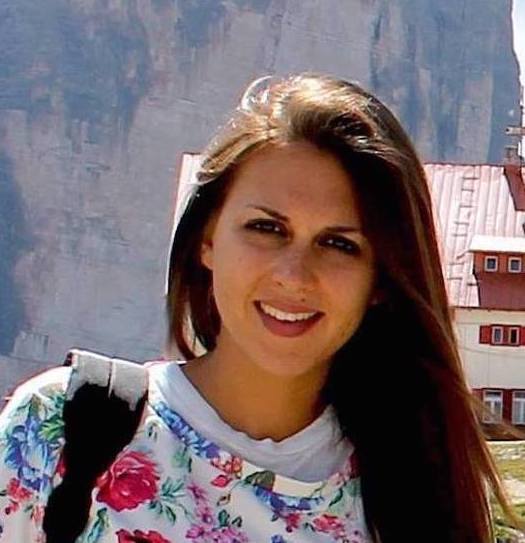


 045 802-8183
045 802-8183





